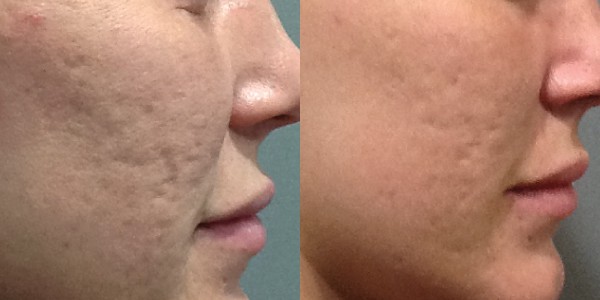Introduction: Revolutionizing Acne Scar Management
Innovations in dermatology have led to groundbreaking advancements in the treatment of acne scars. Among these, Radio Frequency for Acne Scars technology has emerged as a highly effective and minimally invasive option for addressing various types of acne scars. At our clinic, we specialize in utilizing state-of-the-art RF devices to deliver exceptional results for our patients.
Understanding Acne Scars
Before delving into the specifics of radio frequency treatment, it's crucial to understand the nature of acne scars. Acne scars can manifest in different forms, including atrophic scars, hypertrophic scars, and keloids. These scars result from the inflammatory response to acne lesions, which damages the skin's collagen and elastin fibers, leading to textural irregularities and depressions.
How Radio Frequency Works
Radiofrequency treatment harnesses the power of controlled heat energy to stimulate collagen production and remodel scar tissue. The RF energy penetrates deep into the dermis, targeting the underlying layers of the skin without causing harm to the epidermis. This process triggers the body's natural healing response, resulting in smoother, more evenly textured skin over time.
Benefits of Radio Frequency for Acne Scars
1. Non-Invasive Procedure
Unlike surgical interventions, RF treatment is non-invasive, making it suitable for individuals who prefer a less aggressive approach to scar management. The procedure typically requires minimal downtime, allowing patients to resume their daily activities shortly after treatment.
2. Customizable Treatment
RF technology offers versatility in addressing various types of acne scars. By adjusting the frequency, intensity, and duration of the treatment, dermatologists can tailor the procedure to suit each patient's unique skin concerns, ensuring optimal results.
3. Collagen Stimulation
One of the key benefits of RF treatment is its ability to stimulate collagen production in the skin. Collagen is essential for maintaining skin elasticity and firmness, and its replenishment can help improve the appearance of acne scars, resulting in smoother and more youthful-looking skin.
The Radio Frequency Treatment Process
Consultation and Assessment
Before undergoing RF treatment, patients undergo a thorough consultation with a dermatologist to assess their skin condition and discuss their treatment goals. During this consultation, the dermatologist will examine the type and severity of the acne scars and determine the most appropriate treatment plan.
Treatment Session
The RF treatment session typically takes place in a clinical setting and begins with the application of a topical numbing cream to minimize discomfort during the procedure. The dermatologist then administers the RF energy using a specialized handpiece, targeting the areas of concern with precision.
Post-Treatment Care
Following the procedure, patients may experience mild redness or swelling, which usually subsides within a few hours to days. Dermatologists may recommend gentle skincare products and sun protection to promote healing and optimize results.
Expected Results and Recovery
While individual results may vary, many patients notice an improvement in the appearance of their acne scars after a series of RF treatment sessions. Continued collagen production and tissue remodeling occur gradually over several weeks to months, leading to progressive enhancement of skin texture and tone.
Conclusion: Transforming Acne Scar Management
In summary, Radio Frequency for Acne Scars in Riyadh represents a cutting-edge approach to addressing acne scars, offering patients a safe, effective, and customizable solution for achieving smoother, more radiant skin. With its ability to stimulate collagen production and remodel scar tissue, RF technology has revolutionized the field of dermatology, empowering individuals to regain confidence in their skin's appearance.






Comments